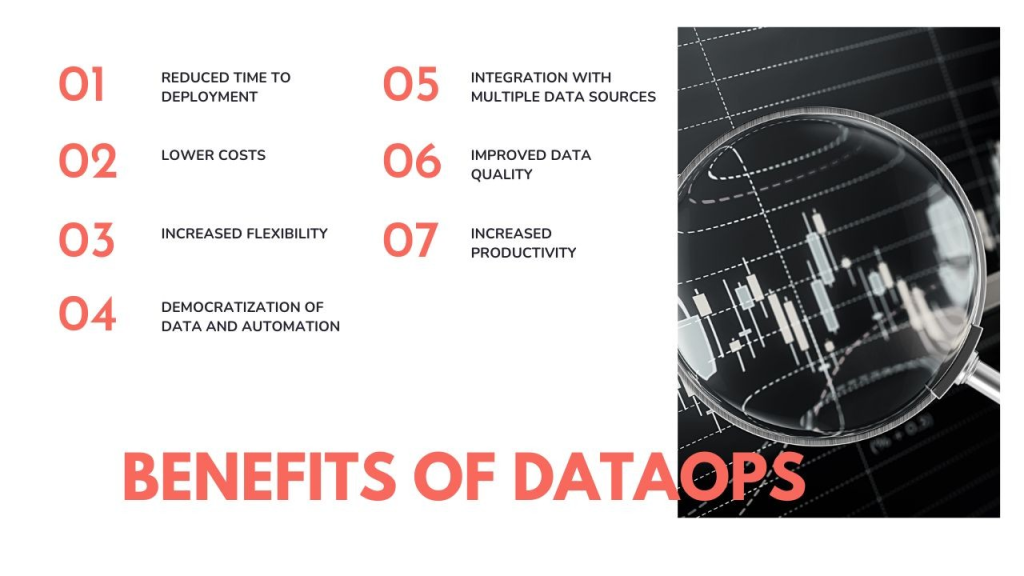
Are you tired of dealing with slow, inefficient IT operations? Have you considered implementing DataOps to streamline your processes and improve overall performance? In this article, we’ll explore the benefits of DataOps for IT operations and why you should consider implementing it.
What is DataOps?
First, let’s define what DataOps is. DataOps is a methodology that integrates data engineering, data integration, and data quality into a streamlined process. It emphasizes collaboration, automation, and continuous delivery of data. The goal of DataOps is to accelerate the delivery of high-quality data to end-users while reducing costs and risks.
Benefits of DataOps for IT Operations
Improved Efficiency
One of the most significant benefits of DataOps for IT operations is improved efficiency. DataOps allows for faster and more streamlined data delivery, reducing the time and effort required to manage data. By automating processes and eliminating manual tasks, IT teams can focus on more critical tasks, such as data analysis and problem-solving.
Better Collaboration
DataOps also promotes collaboration between teams. By breaking down silos and encouraging cross-functional teams, DataOps can improve communication and collaboration. This leads to better decision-making and more efficient problem-solving.
Increased Data Quality
Data quality is essential for IT operations, and DataOps can help improve it. By implementing automated testing and quality checks, DataOps ensures that data is accurate, consistent, and up-to-date. This reduces the risk of errors and improves overall data quality.
Greater Agility
DataOps also promotes agility, allowing IT teams to respond quickly to changing requirements and business needs. By implementing continuous delivery and automated testing, teams can quickly adapt to changes and deliver high-quality data faster.

Cost Savings
Finally, DataOps can lead to significant cost savings. By automating processes and reducing manual tasks, teams can reduce labor costs. Additionally, improved efficiency and agility can lead to cost savings by reducing downtime and increasing productivity.
Conclusion
In conclusion, DataOps can provide significant benefits for IT operations. By improving efficiency, promoting collaboration, increasing data quality, and promoting agility, DataOps can help IT teams deliver high-quality data faster while reducing costs and risks. If you’re looking to improve your IT operations, consider implementing DataOps.